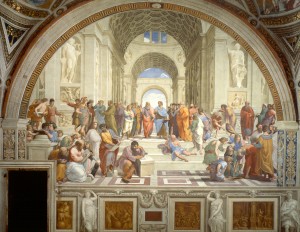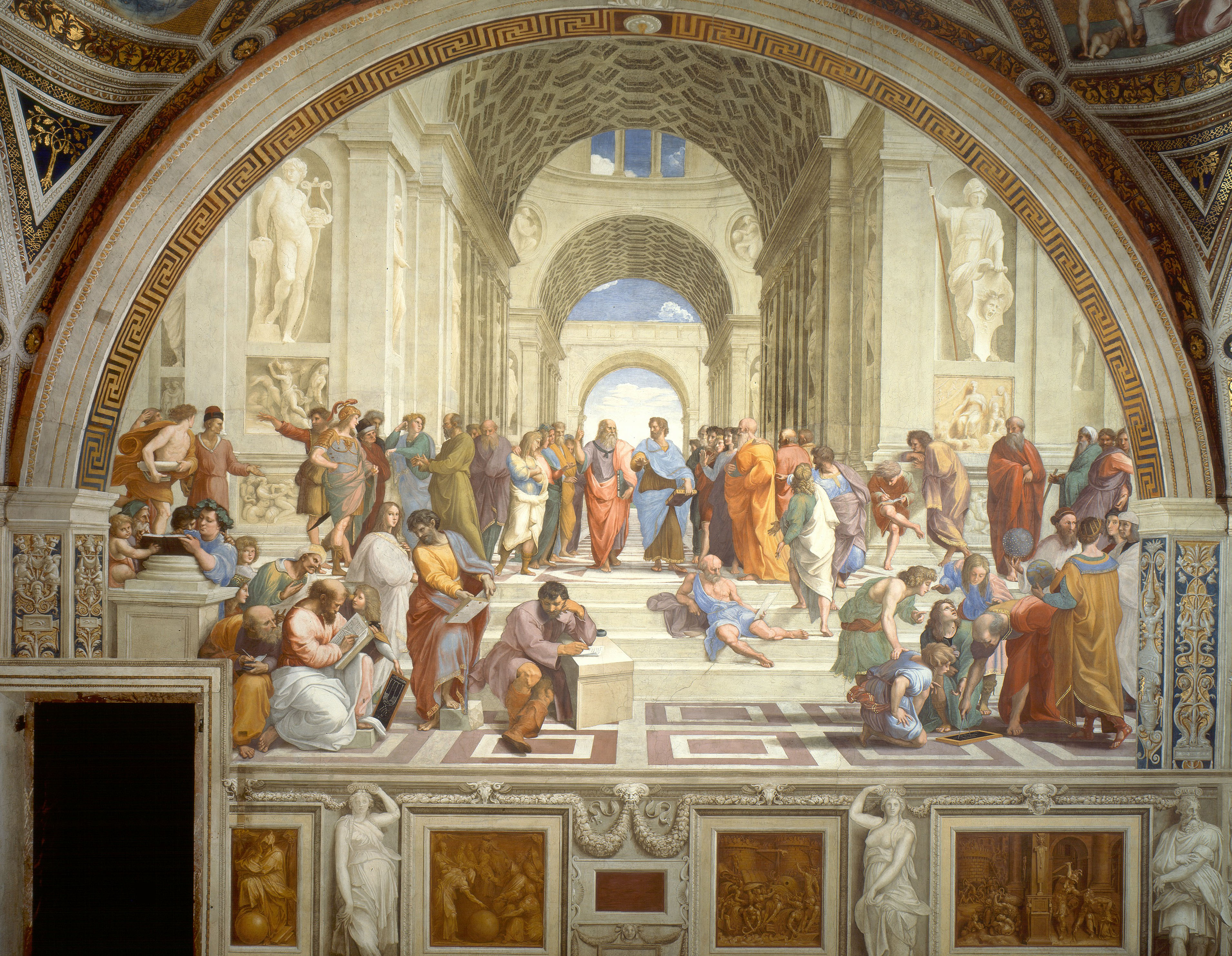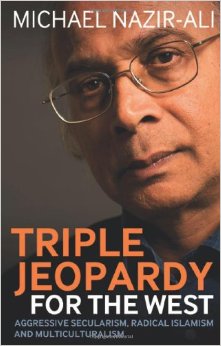Reflections on: Michael Nazir-Ali Triple Jeopardy for the West: Aggressive Secularism, Radical Islamism and Multiculturalism (2012) Bloomsbury: London
The mass murder of British tourists in Tunisia has led the Prime Minister to call for an end to the tolerance of intolerance. Hopefully, the Prime Minister simply means that foreign enemies (like IS) should not be allowed to easily propagandise in British society. It seems that schools will be expected to do more to counter the world-view of Islamic terrorism. That makes a good deal of sense, given that a small number of British students have abandoned their country to fight for the “Caliphate”. However, these young people are not merely accepting IS doctrine; they are also rejecting the values they have been taught in Great Britain. To some teenagers British values not only seem anodyne, but actually worth fighting against.
If this small but disturbing trend is to be countered we will need to supply our students with something more robust and challenging than political sound-bites or citizenship classes. So how should we answer the extremists? In Triple Jeopardy for the West, prophetically penned in 2012, Bishop Michael Nazir-Ali suggests that we start by dealing with our crisis of faith. Britain lacks a common moral vision; no tradition, narrative or set of values unites us. Cynicism and scepticism are the only virtues which command universal respect. We do not trust our leaders or our public institutions; as a result, society feels fractured and communities seem isolated.
But we need some faith in Britain: radical Islamism does not pose an existential threat to the West, but it is dangerous; and it seduces our young people precisely because the West seems too weak and corrupt to challenge injustice. Fretting about the allure of extremism will achieve little if we can offer no better hope for peace and justice. But building an alternative moral vision is next to impossible when aggressive secularism allows no public space for religious belief and multi-culturalism offers only the barren tolerance of relativism.
When Triple Jeopardy was first published, key British institutions had already lost the hearts and minds of the British people.While few ever believed in the honesty of financial sector, numerous crises led to doubt that the City was even competent. Scandals over Parliamentary expenses banished any hope that MPs could regulate their own behaviour. The public trust has deteriorated steadily since 2012. Faith in the press vaporised when journalists for leading tabloids engaged in criminal activity, including phone hacking and police bribery. When it materialised that their editors had significant influence with senior politicians, trust in Parliament eroded even further.
The BBC, the ‘gold standard’ of British broadcasting, was excoriated for shelving reports which revealed that one of its oldest stars, Jimmy Savile, was a serial sex abuser. Britain had grown used to stories about clerical abuse; celebrity abuse was new. Then faith in “the system” evaporated when news emerged that police and social workers in Yorkshire, Oxfordshire and Greater Manchester had simply ignored the abuse of teenage girls at the hands of paedophile gangs for years.
It seems that we cannot trust the watchmen or those watching over them. The only people left to trust are the satirists; but while we can learn from cynicism, we cannot build with it. We need something to trust in, some project which can unite us. Recognising this void the current British government has decided to promote British values. But as Nazir-Ali observes, these are defined in thin, vague terms “usually served up by those scratching about for something to say.”
Our governments must rely on opinion polls and focus groups because there is no respected moral tradition which it can use to justify its decisions. Education ministers – “Christian” in the sense that they are not atheists and do not attend a Mosque – can only offer buzz-words to challenge ideologies they deem dangerous. “Individual liberty”, “tolerance”, or “respect for democracy and the rule of law” are all well and good, but they hardly form a rigorous, compelling moral world-view. Nor do they even define anything distinctively British. We cannot establish a future without building on our past; and to build on the best of our past we must have some understanding of Christianity.
Every country which has been populated by human beings has something to be ashamed of: in our case the slave trade, racism, colonialism, imperialism and religious discrimination. But there is more to our history than depravity and rot; good foundations can be found in the stories of Magna Carta, the Bill of Rights, Olouba Equiano, Catherine Booth, the Royal Society, Wilberforce, Shaftesbury, Florence Nightingale and Emily Davison. Any historical narrative of the British peoples must take account of their relationship with Christianity. Every Briton should appreciate the “Free-Thinking” tradition which includes luminaries from Tindal and Collins, through Hume, Shelley and Russell. But how can anyone understand them without comprehending the world-view they rejected?
 We live in a state of denial; too many politicians, journalists, screenwriters and educators treat orthodox Christian belief either as an object of scorn, or as something that polite, educated people do not mention in public. This insouciant ignorance about religion in general, and Christian doctrine in particular, creates a vacuum in our self-understanding. In Nazir-Ali’s terms, it is a terrible “amnesia”.
We live in a state of denial; too many politicians, journalists, screenwriters and educators treat orthodox Christian belief either as an object of scorn, or as something that polite, educated people do not mention in public. This insouciant ignorance about religion in general, and Christian doctrine in particular, creates a vacuum in our self-understanding. In Nazir-Ali’s terms, it is a terrible “amnesia”.
What is required is a retrieval of our relationship with Christianity. Nazir-Ali correctly discerns that Religious Education could play an important role in the recovery. Of course, he is not suggesting mandatory catechisation. Obviously, students can disagree with the Christian world-view; but every pupil should be aware of it, know the various ways it has manifested itself in British history, and understand how it has shaped our intellectual and moral environment.
In fact, some exam boards have excellent models which could be developed into such a programme. CCEA provides an excellent structure for studying Christianity; AQA’s schemes for GCSE enable a class to examine Christianity critically, comparing aspects of Christian thought to at least one other religion and a secular alternative. The approach taken by AQA actively encourages critical thinking, civil debate and rational disagreement (top marks are not awarded unless pupils can argue for and against a proposition). By insisting on a study of several religions, students avoid a narrow minded parochialism and an appreciation of other world-views. And, of course, the academic study of Islam will help students not only reject, but argue against propagandists.
As Nazir-Ali demonstrates in several chapters, there are modern Muslim thinkers that every student should be aware of. For example the martyr Mahmoud Mohammed Taha, who argued that Quranic texts which authorise violence originated with Muhammad’s military struggle with Mecca. That period of history is over; today, all Muslims should value democracy, equality, dignity and religious freedom. Attention should also be drawn to the he intellectual depth of the Islamic intellectual tradition and Europe’s debt to Muslim scholarship. The Mutazilites deserve a special mention – mediaeval philosophers, scientists and politicians who stressed the importance of reason, humane values and who denounced strict, Shariah based faith.
We should not teach religion to produce specific political, philosophical or religious beliefs in our pupils. Parents must not feel that a school is arrogantly and callously undermining their values. Adolescents dislike sermons and would argue that day is night if given the opportunity. We need merely address the big questions of philosophy, religion and ethics from these different perspectives and help the young people clarify and defend their own beliefs. Teenagers are not vapid blank slates who uncritically absorb every idea the education system throws at them. In fact, given the chance, most are capable of a nuance and sophistication which would embarrass older generations (and some politicians).
Religious education should also have strong links with history and science curricula. Secular historians are well aware of the link between the Christian doctrine of creation and the development of modern science and the concept of human rights. Perhaps secularists can find other arguments to justify their faith in the reliability of human reason and the dignity of the individual human being; perhaps not. But they should not pretend that Christianity has no connection to ideals which they hold dear. Through knowledge, debate and discussion, students will form a variety interpretations of what it means to be British; they will develop a range of valid responses to the ideas and movements that have shaped our country.
Of course, even if the government could be persuaded to make Religious Education a priority, and then be convinced to make the teaching of Christianity, secularism and other religions mandatory, it would take a generation for the effects to be felt. In the short term, the effects of cultural amnesia would still leave Britain listless. Nazir-Ali argues that a movement for Christian democracy could be formed as a distinct political party, or across party-political lines.
I’m not sure if a Christian Democratic party is wise, or even possible. In Britain, theologically orthodox Christians take a wide variety of stances on political issues like climate-change, monetarism, the welfare state, foreign policy and taxation. Indeed, we wonder why American evangelicals tend to agree so much on so many aspects of public policy. Beyond marriage, the sanctity of life and religious freedom, there would be little for British ‘Christian Democrats’ to agree on.
Perhaps a cross party alliance might stiffen a few sinews and give Christian politicians a more public voice. Whether or not there is an appetite for such an alliance, and whether it could ever receive a fair hearing from the British media, is doubtful. Nazir-Ali made his plea in 2012; three years have passed, and no-one has responded. Our best hope, it seems, is to prepare for the future by learning from our past. As a former Chief Rabbi has put it, Britain is the “home we build together”. However we structure its future, Christian theology is in its foundations. We cannot engineer its stability by pretending that this is not so.


